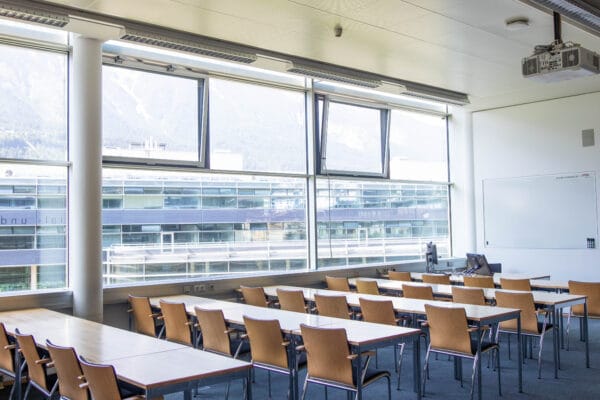
NAME:
MCI - SR 303
BUILDING:
Management Center Innsbruck
FLOOR:
3
TYPE:
Seminar Room
CAPACITY:
54
ACCESS:
Only Participants
EQUIPMENT:
Beamer, Handicapped Accessible, PC, Sound System, Whiteboard, WLAN (Eduroam), Microphones
Demographic, cultural and socio-economic depopulation, migration, ageing, quality of life and youth issues in mountain regions are part of the global agenda. The aim of this study was to identify the needs and expectations of young people living in the mountain villages of Bergama and to learn about their awareness of a sustainable future. There are four factors that motivated us to carry out this study: The migration of young people from mountain villages; the need for tourism in the development of mountain villages; the emphasis on youth in the International Mountain Day 2024; the fact that a survey study with wide participation was conducted in Europe entitled “Being Young in the Mountains”. The study has a qualitative design consisting of a comprehensive needs analysis, a problem-oriented field study and a social comparison. Needs analysis is the preferred tool for identifying needs in order to improve the current situation. Among the techniques used in the needs analysis, in-depth oral interviews were preferred here. Ethics committee approval was obtained for the interviews. Oral interviews were conducted with fifty-one young people in ten mountain villages in Bergama. In the interviews, eight groups of questions were asked to the participants face-to-face using a semi-structured technique. The key concepts of the questions are: need, problem, expectation, vision, awareness, innovation, entrepreneurship and tourism. Maxquda software was used to analyse the data and comments were made through content analysis. According to the findings; basic services such as roads, internet, health centre are quite inadequate in the villages, there are no non-agricultural employment opportunities and the income from agriculture and livestock is very low. For this reason, it is inevitable that young people leave their villages and it becomes impossible for them to return. On the other hand, it has been shown that they can live in their villages and make a living.

We and use cookies and other tracking technologies to improve your experience on our website. We may store and/or access information on a device and process personal data, such as your IP address and browsing data, for personalised advertising and content, advertising and content measurement, audience research and services development. Additionally, we may utilize precise geolocation data and identification through device scanning.
Please note that your consent will be valid across all our subdomains. You can change or withdraw your consent at any time by clicking the “Consent Preferences” button at the bottom of your screen. We respect your choices and are committed to providing you with a transparent and secure browsing experience.